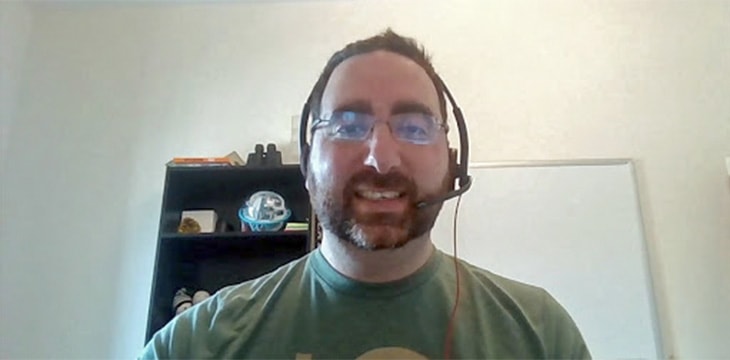|
Getting your Trinity Audio player ready...
|
There’s been plenty of talk about how there should be blockchain solutions to the Covid crisis. Now, finally, there’s action. The Bayesian Group, a Toronto-based AI and blockchain-oriented markets analyst, is launching a token on the Bitcoin SV blockchain that will allow the monitoring of individuals’ self-reported health updates and offer ‘heat maps’ of localised virus outbreaks.
Bayesian’s Eric Bernhard said that users would be invited to update their status daily with a simple message about how they were feeling which could be delivered over many different communications channels, including social media and texts.
Then if “you’re sitting at home and wondering whether or not you should go to the grocery store,” Bernhard explained, “you go check out the Covid token heat map and you can zoom into your area and know that the 3000 people around you have said, ‘I’m feeling OK’.”
The idea is to make a forward-looking, preventative model – as opposed to Internet tracing apps which are retrospective, in that they start with someone who already has the virus and go back into their history to see who they have been in contact with.
By putting individuals’ results on the blockchain, the Bayesian app will solve many of the problems around data ownership and privacy that limit the utility of other models. By working with a decentralized system, Bernhard says, “that means that nobody owns the data. There’s no ownership”. And that allows that results to be shared, to the benefit of the whole population, as opposed to apps controlled by, say, the NHS or John Hopkins University, when “no one gets access to it except the people that are allowed access”.
To make the app work globally, Bayesian is partnering with a wide range of organisations who will receive users’ health update messages. That could be via Twitter, Slack or through an email provider. Users are just asked to respond to a very simple question like “how are you feeling today?”. And to overcome language barriers, their answer can be given on a numeric scale. In developing countries, users can simply text their response on a feature phone.
Initially, Bayesian will be subsidising the project by paying its blockchain transaction fees: “we want to contribute to the ecosystem of Covid data, because we think it’s beneficial.” Eventually, there might be income from corporations who could use the data to help with business decisions such as when to open stores, for instance.
The Covid project hinges on the willingness of ordinary people to spend time sending it data. However simple it’s made, will people choose to participate? “Our challenge,” Bernhard says, ”is to communicate the benefits to people [by saying] ‘take five seconds while you’re waiting. You have extra time because you’re not commuting or you’re on your walk …just take five seconds, go into the same places that you already go and just make a quick status update. And that can help your entire community and protect your family, because the more information you know about the areas around you, the better it is for your family.”
Hear the whole of Eric Bernhard’s interview in this week’s CoinGeek Conversation podcast:
You can also watch the podcast video on YouTube.
Please subscribe to CoinGeek Conversations – this is the 23rd episode of the podcast’s third season. If you’re new to it, there are plenty of episodes from the first two seasons to catch up with, as well as plenty from this year.
Here’s how to find them:
– Search for “CoinGeek Conversations” wherever you get your podcasts
– Subscribe on iTunes
– Listen on Spotify
– Visit the CoinGeek Conversations website
– Watch on the CoinGeek Conversations YouTube playlist

 02-18-2026
02-18-2026 




